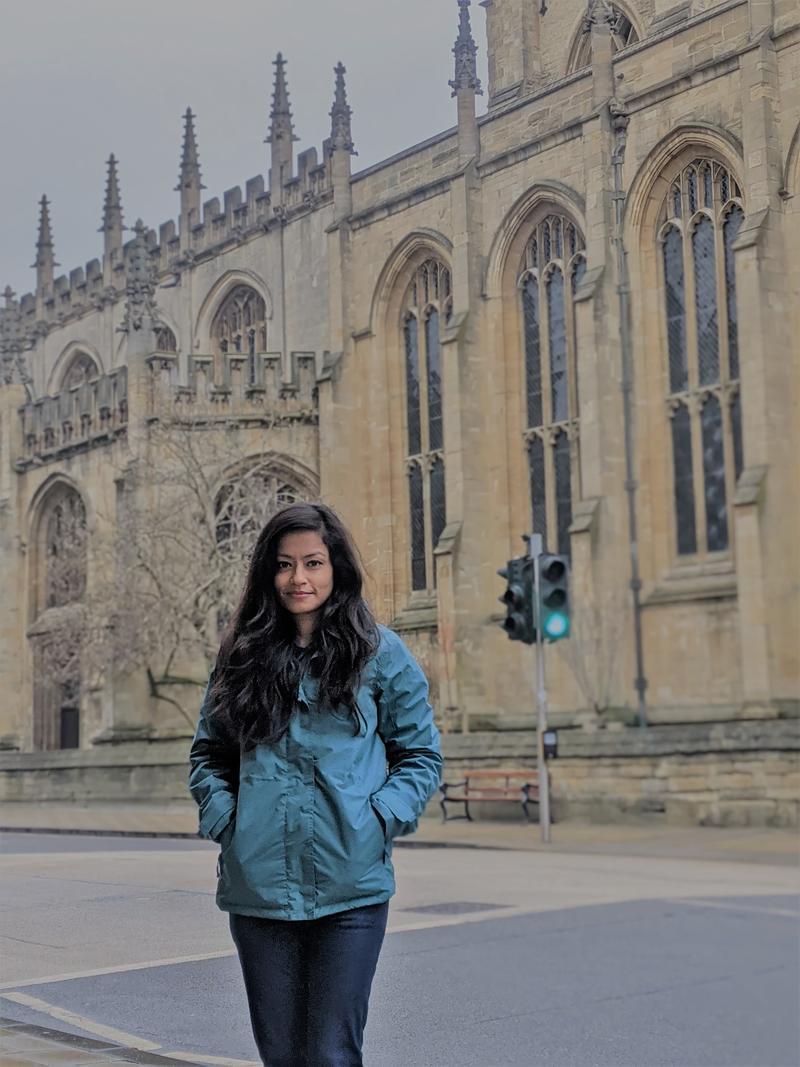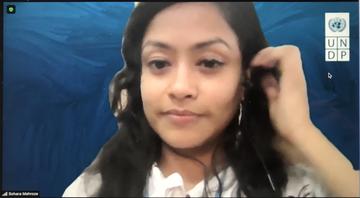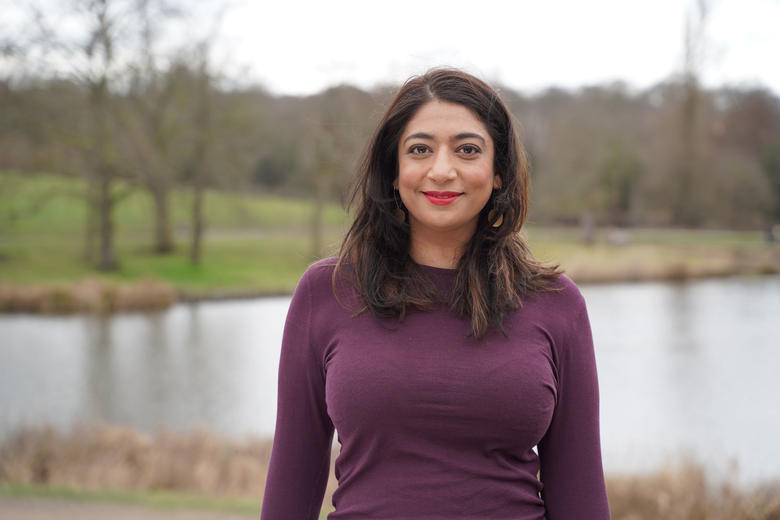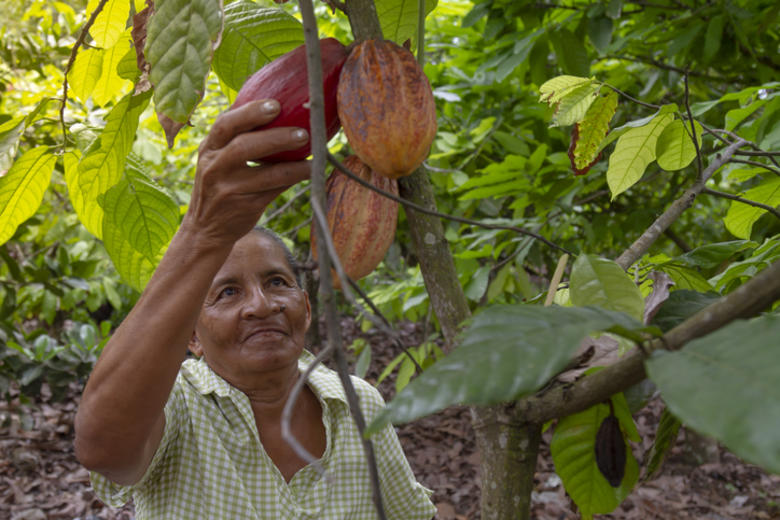ENVIRONMENTAL VISIONARY ALUMNA DISCUSSES SOLAR MICROGRIDS AND BANGLADESH

ENVIRONMENTAL VISIONARY ALUMNA DISCUSSES SOLAR MICROGRIDS AND BANGLADESH
Sohara Mehroze Shachi discusses her Oxford degree, her role at the UN and how her native Bangladesh is adapting to climate change
Published: 11 November, 2021
Author: Richard Lofthouse
Share this article
Sohara Mehroze Shachi (St Antony’s, 2020) just graduated from Oxford with a Masters of Science (MSc) in Environmental Change and Management at the Environmental Change Institute, and is now back in Dhaka as Head of Solutions Mapping at the UN Development Programme’s Accelerator Lab.
It was a very strange degree year on account of COVID, she says, and even while in Oxford most of her teaching was via the internet, so that she ‘never saw the inside of her department building.’
Balancing this, she recalls a frenzy of travel at weekends as soon as the lockdowns ended, plus a field trip to the Lake District. Her cohort was about 30 peers and they became very supportive of each other with many get togethers at Port Meadow.
She speaks highly of a degree that walks everyone through the basic science of climate before opening up a module on sustainable pathways and to what extent the planet has hard limits, versus various visions for ‘green growth’ (a fiercely debated topic, she notes).
Another module discussed governance challenges particularly in developing countries, plus the broad and difficult issue of de-carbonizing the grid, given that 80% of global energy needs are currently met by fossil fuels.
She then moved towards elective work concerning how to mobilize financing for change, a subject she had already worked on in a previous role at the United Nations. Her supervisor in this respect was Professor Ben Caldecott, the founding Director of the Oxford Sustainable Finance Programme at the University of Oxford Smith School of Enterprise and the Environment. Her second elective was on the circular economy.
During the year she presented a short documentary on ME SOLshare Ltd, a peer-to-peer solar energy company that is revolutionising energy systems in parts of rural South Asia. It was an extremely challenging project but the film speaks for itself, showcasing resilient, household-to-household solar grids in remote locations in a country where imported oil and coal and domestic gas remain the dominant source of electricity, and where as much as a third of the rural population had no access to electricity as recently as 2015.
Sohara remembers vividly how one of the film crew suffered from heat stroke, while after a day filming in Dhaka in rain, they faced an arduous journey to the remote island of Pirgacha, in the northern Bogra district in a rickety boat over turbulent waters during an intense heat wave. It was an intense adventure that reinforced just how challenging climate change already is, never mind future scenarios and predictions about sea-level rises.
But perhaps above all the film offered concrete hope by showing how straightforward it is to install solar power within each house, then knitting these dwellings together so that if you need more than you produce you pay your neighbour, and vice versa – a smart, sustainable grid bringing transformative power to people who often have had none, whether the local pharmacist or the businessman featured in the film who mends mobile phones and typically needs a bit more power than his own solar panels during the working day.
Like many of her peers in the Oxford degree programme, Sohara had already worked in the field of sustainable development for several years. ‘Over the course of my work on building climate resilience, I realised that the biggest challenge to combating climate change is the dearth of professionals with an interdisciplinary understanding of environmental management and climate science. I aimed to help fill this gap. I applied to the Oxford MSc in Environmental Change and Management as I knew it would help me address challenges related to natural resource management, analyse environmental policies and make informed recommendations to government ministries for attaining sustainable development.’

Concerning the unique experience of low-lying Bangladesh, (pictured left, speaking to QUAD from Dhaka on 9 November) she says, ‘Growing up in one of the most climate vulnerable countries of the world, I have first-hand experience of the devastating impacts of natural disasters - the frequency and intensity of which are increasing due to climate change - wreaking havoc on the lives of millions of people on the forefront of these calamities. This has shaped my perception of what directionless economic growth powered by fossil fuels and unmitigated carbon emissions can result in, and the urgent need of better managing the implications of our actions on people and the planet.
Besides her full-time job with the United Nations Development Programme and her environmental journalism work, Sohara is also part of a voluntary youth organization called the Global Shapers Community, an initiative of the World Economic Forum aimed at young adults under the age of 30. She is also part of a music group and loves singing.
‘My plans for the future are to aid governments in adopting more ambitious mitigation and adaptation measures, help businesses reduce their carbon emissions to attain net zero and a circular economy, and to continue raising awareness on environmental issues while spreading the hope of a greener future through journalism.’
Watch the Al Jazeera documentary.
Picture credits: Shutterstock for the listing image of the Bangladeshi flag; otherwise Sohara Mehroze Schachi















